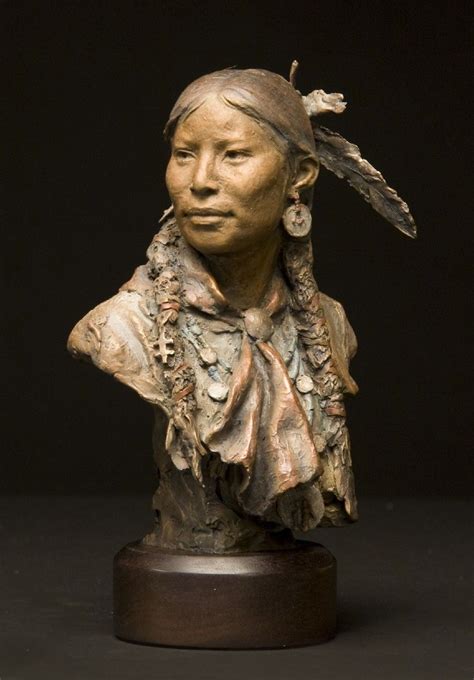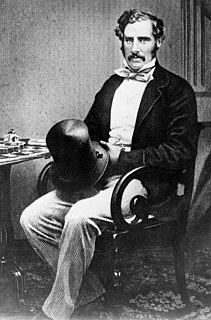A Quote by George Washington
I never mean, unless some particular circumstances should compel it, to possess another slave by purchase, it being among my first wishes to see some plan adopted, by which slavery in this country may be abolished by law.
Related Quotes
Colonization was the idea that once slavery ended African-Americans should be encouraged - or required, in some people's view - required to leave the country. It's part of an attitude toward the abolition of slavery which says America should not be a slave society, but it can never be a multiracial society. You can never have free black and white people living together.
Every time we sign a treaty with another country, the treaty (should) include prisoner transfer provisions.... Under these provisions, the country in which the crimes were committed could demand that the convicts' country of origin incarcerate the prisoners for the terms to which they were sentenced.... Foreign felons in U.S. prisons are exacerbating out budget and law enforcement problems.... We will never get countries to take back their prisoners unless we have some leverage. NAFTA gives us that opportunity.
The first thing to say is that the ordinary criminal law in this country, the Human Rights Act, the Children's Act, all of the laws of the country take precedence, but what I'm also saying is that within the context of a secular country, which Britain now kind of is, or at least a country which purports to be relatively equal between religions, there should be some scope for allowing faith communities to govern themselves - subject to it being consensual and subject to everyone's human rights being observed.
Some few, and I am one of them, even wish to God, though at the loss of millions of lives, that the North would proclaim a crusade against slavery. In the long-run, a million horrid deaths would be amply repaid in the cause of humanity. Great God! how I should like to see the greatest curse on earth - slavery - abolished!
I can only say that there is not a man living who wishes more sincerely than I do, to see a plan adopted for the abolition of it - but there is only one proper and effectual mode by which it can be accomplished, and that is by Legislative authority: and this, as far as my suffrage will go, shall never be wanting.
Civil rights, as we may remember, are reducible to three primary heads; the right of personal security; the right of personal liberty; and the right of private property. In a state of slavery, the two last are wholly abolished, the person of the slave being at the absolute disposal of his master; and property, what he is incapable, in that state, either of acquiring, or holding, in his own use. Hence, it will appear how perfectly irreconcilable a state of slavery is to the principles of a democracy, which form the basis and foundation of our government.
Many poets are not poets for the same reason that many religious men are not saints: they never succeed in being themselves. They never get around to being the particular poet or the particular monk they are intended to be by God. They never become the man or the artist who is called for by all the circumstances of their individual lives. They waste their years in vain efforts to be some other poet, some other saint...They wear out their minds and bodies in a hopeless endeavor to have somebody else's experiences or write somebody else's poems.
The First and Fourteenth Amendments say that Congress and the States shall make "no law" which abridges freedom of speech or of the press. In order to sanction a system of censorship I would have to say that "no law" does not mean what it says, that "no law" is qualified to mean "some" laws. I cannot take this step.
Thoughts are ephemeral, they evaporate in the moment they occur, unless they are given action and material form. Wishes and intentions, the same. Meaningless, unless they impel you to one choice or another, some deed or course of action, however insignificant. Thoughts that lead to action can be dangerous. Thoughts that do not, mean less than nothing.
The South was at the point where the scale was tipping against slavery. It was slowly dawning on the plantation owners that slave labor was not economic, besides being morally wrong. Slavery was destined to be abolished, whether for economic reasons or moral reasons matters not, but the international intriguers were not going to wait for voluntary abolition to rob them of their trump card.
Body', 'soul', and 'spirit' may designate phenomenal domains which can be detached as themes for definite investigations; within certain limits their ontological indefiniteness may not be important. When, however, we come to the question of man's Being, this is not something we can simply compute by adding together those kinds of Being which body, soul, and spirit respectively possess--kinds of being whose nature has not as yet been determined. And even if we should attempt such an ontological procedure, some idea of the Being of the whole must be presupposed.
In a free country, America, or India, and Japan, and many places, democracy country, free country, but still within the sort of rule of law, some injustice, some sort of problems, some discrimination, and also some sort of scandals or the corruptions. These things, you see, they are always in my mind, I think many people agree, lack of moral principle.
































